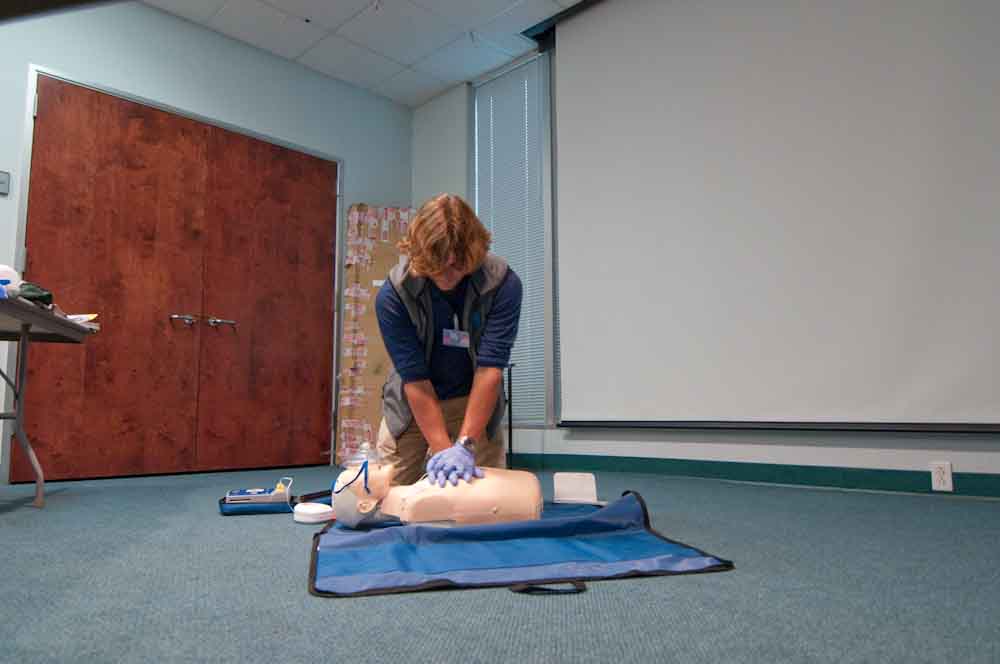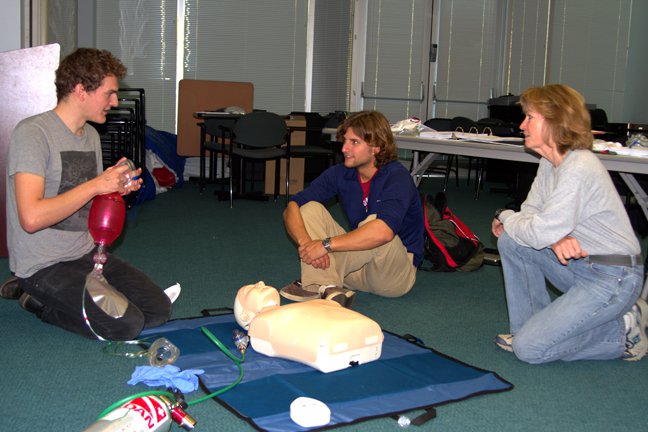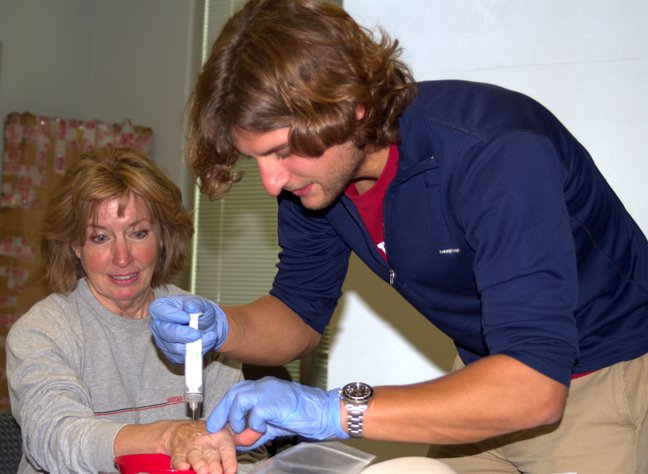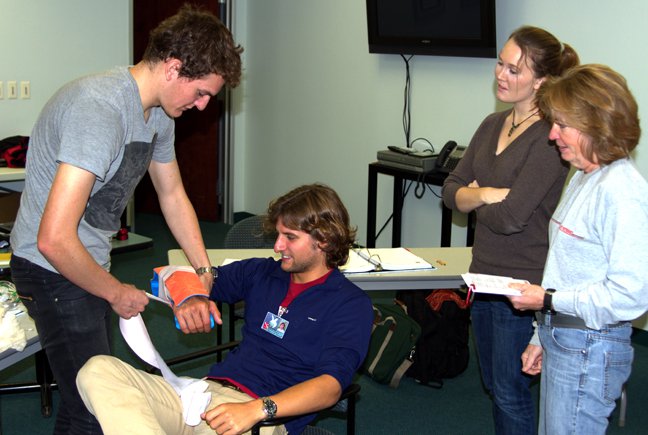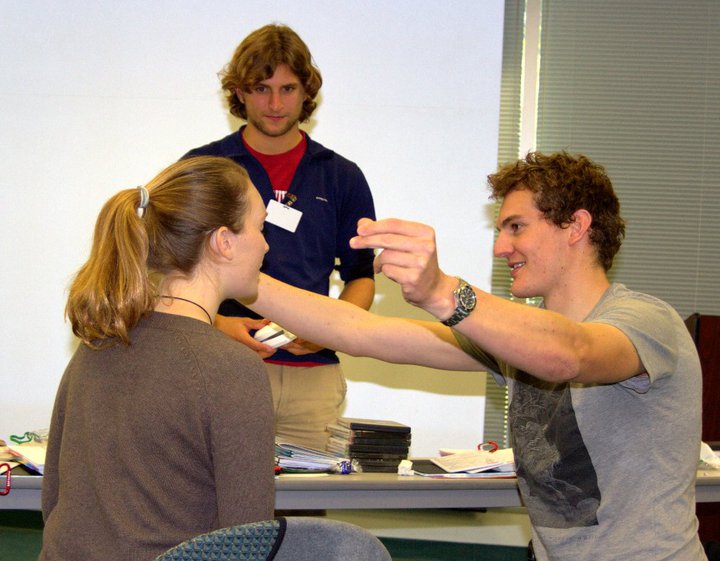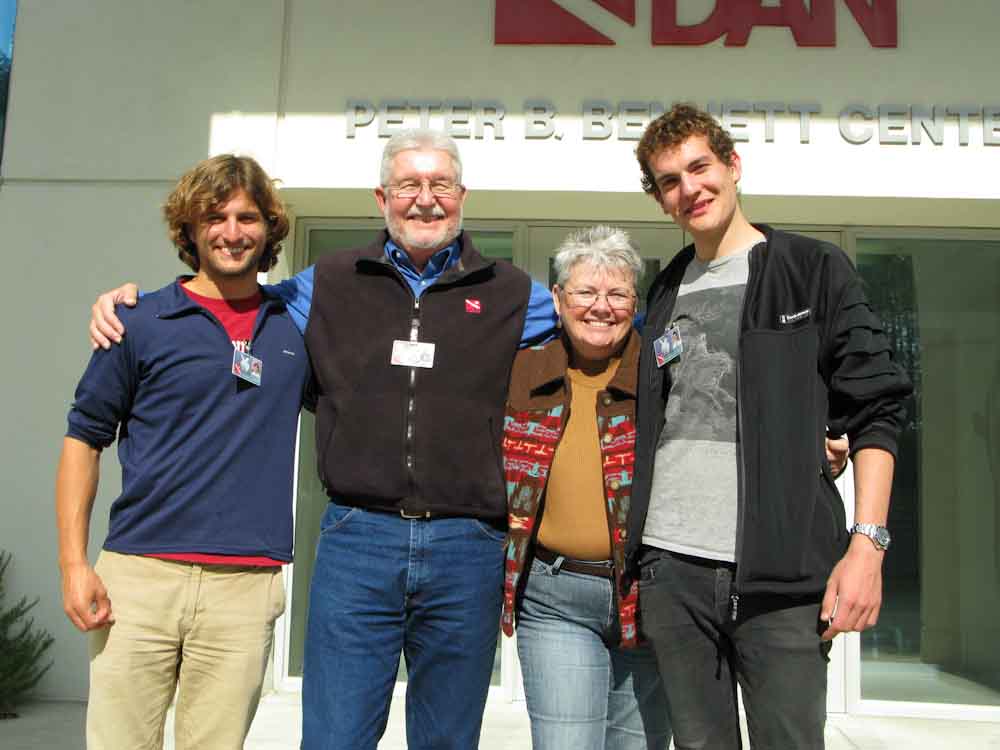I’m inside Divers Alert Network HQ: center of the diving accident management world. Thousands of phone calls come through this building every year, some of which require fast action in order to save lives. Medics are on call 24 hours a day to address diving accidents all over the world and perhaps the most knowledgeable individuals in diving medicine work in this three-storey building. The atmosphere is… surprisingly laid back.
Will Arlidge, the Australasian scholar, and I are spending 4 days here to learn more about how DAN, arguably the most important agency in the dive world, functions. DAN is like a family. Call up and you can talk to anyone you want to: there are no machines answering the phones so that the staff never have to deal with people, there’s no horrible automated menu to sort through to renew your insurance, and if you want to talk to Dan or Betty Orr, our generous hosts during this brief stay in Durham and the heart and soul of DAN, well then you can do just that.
What has probably become DAN’s most important service to the diving community is their dive insurance program. The incredible expenses associated with treating a case of decompression illness is often not covered by your average insurance company, and claiming insurance even from those companies that do can often be tedious and complicated. What does DAN have to say to that? ‘We’re here for you.’ Because DAN is a non-profit organization, there’s no squeezing money out of clients or refusing to pay claims. Their only goal is to make sure that a diver in need gets the care they require.
The DAN medical advisory hotline is another critical service that has been helping divers since 1982. Divers with medical questions or diving emergencies can call DAN to get expert advice (not diagnoses!) on medical conditions and assistance getting emergency medical care for a diving accident. We had the privilege of shadowing the team of highly trained dive medics as they answered phone calls from all over North America (during the low season for diving the calls are mostly regarding medical questions, but there was the odd DCI case as well).
What was most exciting for me, though, was the DAN medical training that Will and I received. There’s nothing quite as horrible as feeling helpless during a diving emergency, which unfortunately was exactly the case for me a few years back when I was still an open water diver. Since then I’ve gone on to get wilderness first responder qualifications along with my DAN Oxygen provider certification and several CPR/first aid ratings. During our stay at DAN we had the opportunity to train as DAN Instructors, and now we’re able to teach courses in DAN Oxygen provider, advanced O2, AED use, marine life injuries and on-site neurological assessments. Fortunately for me, I’ve never had to use my first aid training in any serious accident, so the instructor courses were also a great opportunity to brush up on some of my skills (you never really know something until you’ve taught it).
We also had the chance to check out the Duke Hyperbaric Chamber and get some in-depth schooling on hyperbaric medicine from Nick Bird, DAN’s practicing M.D. At the top of the list, though, was definitely spending some quality time with Dan and Betty Orr, whose dedication to the ongoing success of DAN and the safety of the dive community as a whole is really something special.

